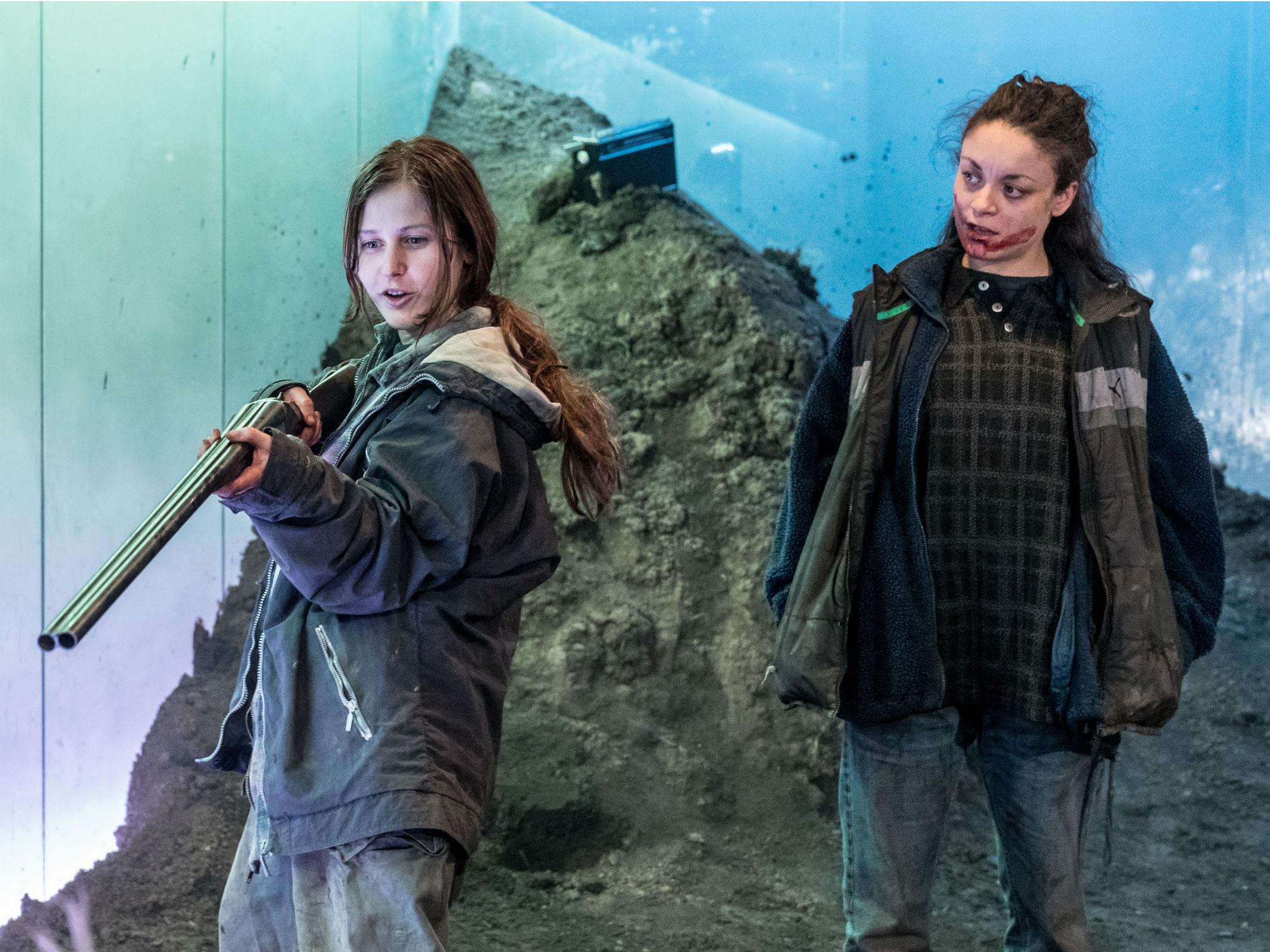Gundog, Jerwood Theatre Upstairs, Royal Court, London, review: Finely acted and beautifully paced
Simon Longman’s debut Royal Court play, directed by Vicky Featherstone, about two sisters fighting for survival on a rural farm, shows him to be a playwright of distinct promise

Your support helps us to tell the story
From reproductive rights to climate change to Big Tech, The Independent is on the ground when the story is developing. Whether it's investigating the financials of Elon Musk's pro-Trump PAC or producing our latest documentary, 'The A Word', which shines a light on the American women fighting for reproductive rights, we know how important it is to parse out the facts from the messaging.
At such a critical moment in US history, we need reporters on the ground. Your donation allows us to keep sending journalists to speak to both sides of the story.
The Independent is trusted by Americans across the entire political spectrum. And unlike many other quality news outlets, we choose not to lock Americans out of our reporting and analysis with paywalls. We believe quality journalism should be available to everyone, paid for by those who can afford it.
Your support makes all the difference.Simon Longman’s Royal Court debut play, which is set on a farm in the middle of nowhere, is not calculated to win many recruits to the rural life. Mounds of muddy earth flank Chloe Lamford’s oppressive, low-ceilinged set and it’s a grim struggle for survival in these remote parts where the quiet would send you mad if you listened to it enough. Two sisters – chatty Becky and morose Anna – are modern-day shepherdesses fighting to hold it together after the death of their mother. They are desperately poor and the family is falling to pieces. Grandfather is drifting into dementia; grief for his wife has left their father wandering about the place like his own ghost; 40 sheep have had to be shot, after becoming infected possibly through the negligence of their useless, discontented brother. No danger of mistaking this piece for an exercise in pastoral idyll.
The play begins far into the story and then loops back to show us how the sisters have ended up this way – alone and scratching out a living from a flock of stolen sheep – before it catches up with itself and moves on. The flinty humour that glints through Longman’s script is evident from the opening scene. A foreign migrant worker (Alec Secareanu) is revealed next to the body of an ailing ewe who has just given birth to a dead lamb. While this stranger cowers before the shotgun that Anna (Rochenda Sandall) is pointing at him, Ria Zmitrowicz’s excellent Becky, who has dropped out of school, bombards him with deadpan, abrasive questions (“Not fingering sheep are you?”). But the upshot of this taunting tease is that they take on the hardworking, remorse-plagued man to provide extra help in return for just food and shelter. It’s a situation that will create enormous tension when their loutish failure of a brother (Alex Austin) returns from his humiliating time away in search of alternative livelihood.
Vicky Featherstone’s production is finely acted and beautifully paced, the quiet punctuated with unnerving bursts of cataclysmic clanking, the sky flaring ominously at moments through the translucent walls of the set. This is a world where they think they can feel the world turning under their feet, where a year can pass in the blink of an eye, the characters in exactly the same pose as the action resumes. The grandfather yearns to be able to stop time so that the family can have a breathing space in which to be brave. Alan Williams gives a lovely performance as this dementia-afflicted figure who grates on everyone’s nerves with his crude repetitive stories and yet stabs the heart with his stoic moments of lucidity about what is happening to him; “I’m just happy right now that I can look at each of you and my mind hasn’t forgotten who you all are just yet”.
The fear of dying among strangers (which can also be the fate of migrants) haunts the piece. With a fine, rhythmic insistence, it eloquently raises many existential questions (about the experience of time and the cycles of nature and the meaning of responsibility etc) but it fails to give enough social context or personal hinterland to characters who, despite the appearance of one mobile phone, feel too helplessly cut off from the modern world in their symbolic isolation. The wonder is that the play manages to maintain its balance and doesn’t keep toppling into parody. But the author has firm control of the poetry and humour. If one definition of talent is the ability to dictate the terms on which an audience receives your work, Longman must be accounted a playwright of distinct promise.
Until 10 March (royalcourttheatre.com)
Join our commenting forum
Join thought-provoking conversations, follow other Independent readers and see their replies
Comments